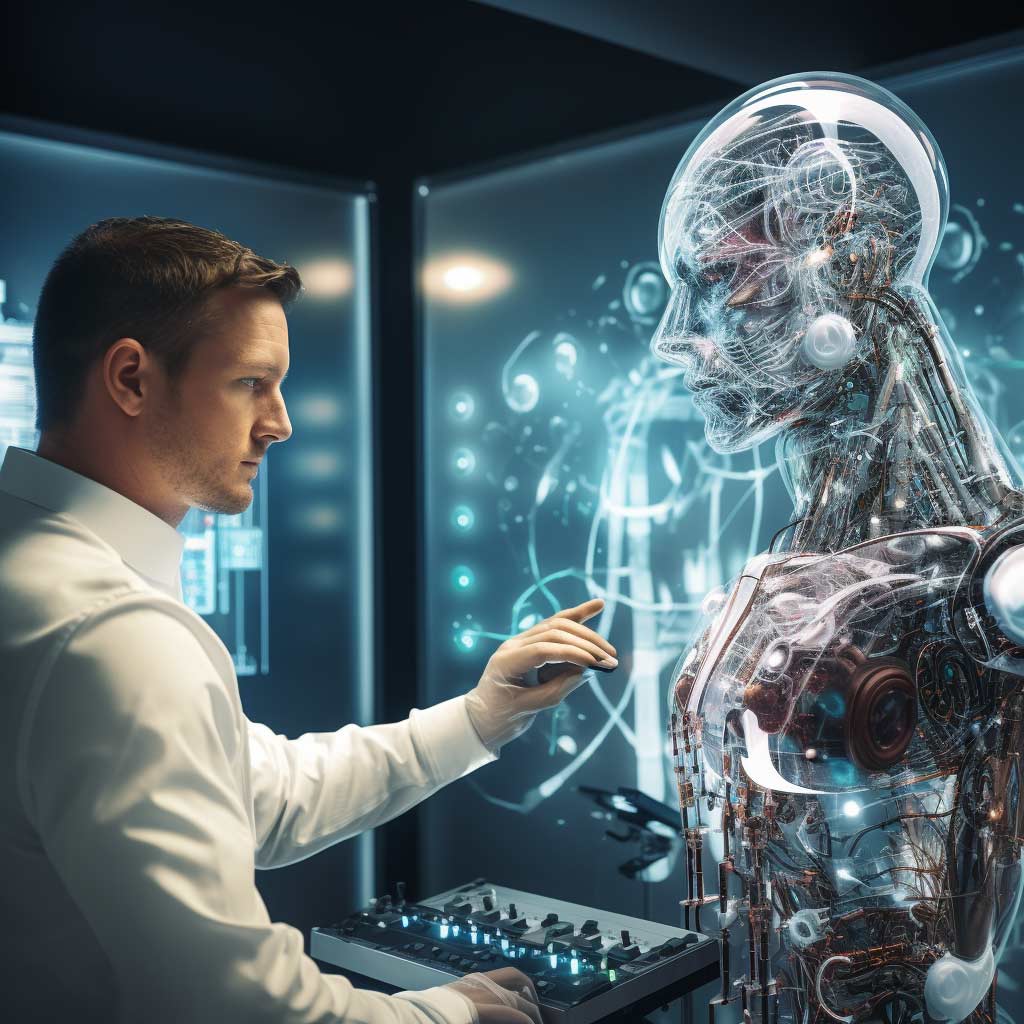Artificial intelligence (AI) is rapidly transforming the field of medicine. AI is being used to improve diagnosis, treatment, and research in a number of ways.
One of the most significant impacts of AI on medicine is the improvement of diagnosis. AI can be used to analyze medical images, such as X-rays, MRIs, and CT scans, to identify diseases. AI is also being used to develop new diagnostic tools, such as wearable devices that can monitor patients’ health in real time.
For example, AI-powered image analysis tools can be used to detect cancer cells in mammograms with greater accuracy than human radiologists. AI-powered wearable devices can be used to monitor patients’ blood pressure, heart rate, and other vital signs to identify early signs of disease.
AI is also being used to improve treatment. AI can be used to personalize treatment plans for each patient, based on their individual needs and circumstances. AI is also being used to develop new treatments, such as targeted therapies that are designed to attack specific cancer cells.
For example, AI-powered systems can be used to recommend the best treatment plan for a patient with cancer, based on the patient’s tumor type, stage, and other factors. AI-powered drug discovery tools can be used to identify new drugs that are more effective and less toxic than existing treatments.
AI is also being used to improve research. AI can be used to analyze large datasets of medical data to identify patterns and trends that can help researchers develop new treatments and cures. AI is also being used to develop new research tools, such as virtual laboratories that can be used to conduct experiments without the need for physical equipment.
For example, AI-powered data analysis tools can be used to identify genetic mutations that are associated with certain diseases. AI-powered virtual laboratories can be used to test new drugs and treatments without the need for animal testing.
The impact of AI on medicine is still evolving, but it is clear that AI has the potential to revolutionize the way we diagnose, treat, and prevent diseases. AI is making medicine more precise, effective, and affordable.
Here are some specific examples of how AI is being used in medicine:
- AI is being used to develop new medical devices, such as robotic surgery systems and implantable sensors.
- AI is being used to improve patient care, such as by providing personalized recommendations for treatment and managing chronic conditions.
- AI is being used to educate and train healthcare professionals, such as by providing simulation-based training and personalized feedback.
As AI continues to develop, we can expect to see even more innovative applications of AI in medicine.


